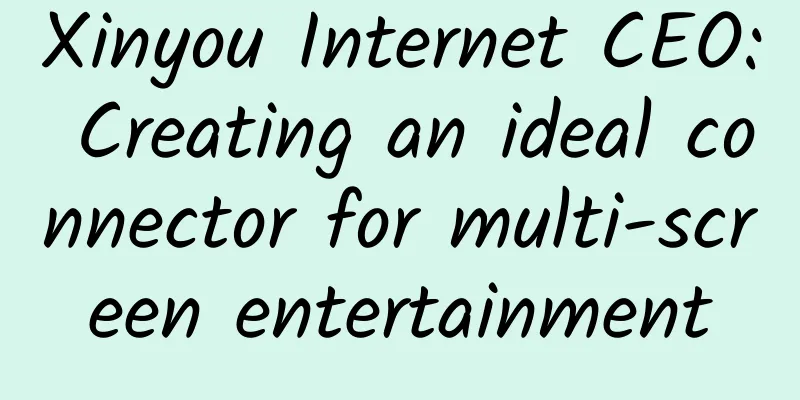Google finally spins off its self-driving car business, but it may be too late

|
Google held a press conference today to announce that it would separate its self-driving business (represented by the cute self-driving car) from the [x] lab and establish an independent company under the parent company Alphabet. The new company is called Waymo, and its CEO is John Krafcik, the former president of Hyundai Motor America, who has just joined Google's self-driving business for a year. John KafcikKafcik revealed at the press conference that Waymo will be involved in car sharing (mobile phone ride-hailing), logistics and other businesses in the future. The mission of this new company is extremely important: to end the embarrassing situation that Google was the first to start research and development in the industry, but lagged behind almost every latecomer in commercialization, and commercialize unmanned/autonomous driving technology faster. The first question in this matter is: Why break up? Or more precisely: Why break up now, and not as early as when Alphabet was reorganized? This question is difficult to answer, but thousands of words can be summed up in two words: market and talent. Google is late to the market and lacks talent. If Google doesn't split up, the whole team will just break up and start their own business. Google is the first large-scale technology company in the world to start developing automatic/unmanned driving technology. At Google, this project was launched in 2009 - that year, all mainstream car manufacturers were still enjoying the market advantages given to them by technological bottlenecks and had not given much serious consideration to autonomous driving technology. Uber was just founded in 2009. In May of this year, Uber's self-driving cars were put on the road and operated in Pittsburgh; in August of this year, Singapore also officially unveiled its self-driving taxis. The impression of Google's driverless cars always seems to be those cute little buns walking on the streets of Mountain View. As for the news about the official production and commercialization of automatic/driverless cars, the protagonists are Uber, Lyft, Tesla , and even Baidu . As radical as Uber is, let alone self-driving cars, it has even released a white paper on realizing self-driving vertical take-off and landing aircraft within 10 years - from beginning to end, the market created by Google has nothing to do with Google. After talking about the market, let’s talk about talent. Google's self-driving talent has almost gone, and the technical backbones of the early team have all left: Sebastian Thrun left to start the educational technology company Udacity; Anthony Levandowski founded Otto with three familiar colleagues to continue working on self-driving, and this company has just been acquired by Uber; Chris Urmson, CTO of the founding team, just left in August this year; another technical expert Jiajun Zhu also left earlier to form the robotics company Nuro. It is an unlucky thing for the founding team to leave. Why can't Google retain people? Is it because the salary is not high enough, the team culture is problematic, or there are no technical challenges or too many challenges? Probably none of them. It is a talent issue, and it will eventually return to the market. Google has been slow to announce the roadmap for bringing automatic/unmanned driving technology to the market. For the technical backbone of the team, this situation is no different from doing scientific research in a university - universities always cooperate with companies.So, by breaking away from the past reliance on researching technology and racking up mileage in the lab, and spinning off independent companies to conduct market-oriented business and be self-sufficient - will this kind of Waymo be better than before? uncertain. After Google's reorganization, many "moon landing projects" died one after another, and the idea of "changing the world" was defeated by reality: Google Glass smart glasses could not find a market, and the team was disbanded; Access fiber broadband, which was split from Google Fiber, could not be promoted (the parent company thought it was too expensive) and switched to wireless business, and no one knew where its "original intention" had been lost; the modular mobile phone Ara has been talked about for four years but has not been available; the robotics company Boston Dynamics can always use animated pictures to attract users but has no customers who buy it... Is Waymo's future secure? No. More than a year after the reorganization, the advantages of the model of so-called "independently operating" different "startups" under the shadow of large Internet "conglomerates" have not been proven. As a winner of Toutiao's Qingyun Plan and Baijiahao's Bai+ Plan, the 2019 Baidu Digital Author of the Year, the Baijiahao's Most Popular Author in the Technology Field, the 2019 Sogou Technology and Culture Author, and the 2021 Baijiahao Quarterly Influential Creator, he has won many awards, including the 2013 Sohu Best Industry Media Person, the 2015 China New Media Entrepreneurship Competition Beijing Third Place, the 2015 Guangmang Experience Award, the 2015 China New Media Entrepreneurship Competition Finals Third Place, and the 2018 Baidu Dynamic Annual Powerful Celebrity. |
>>: Data | Big data explains whether Internet car manufacturing is reliable
Recommend
What is the largest planet in the universe? Uncovering the mystery of "super Jupiter"
Author: Duan Yuechu and Huang Xianghong There are...
Feishu: How to achieve team efficiency improvement and organizational upgrade
Feishu: How to achieve team efficiency improvemen...
Where can I buy Yulin crispy dog meat?
Autumn wind blows, eat dog meat In Guangzhou, it ...
Counterpoint: Revenue of the world's top five chip manufacturers will drop 1% year-on-year in 2023
The top five global wafer processing equipment (W...
After upgrading to iOS 15, Meituan was exposed to "locate" every five minutes, and Apple fans finally got angry
[[428179]] Many people may not know that in iOS15...
Tesla CEO Musk: China has become the global leader in electric vehicle applications
Tesla's Shanghai Super Factory officially sta...
Pepsi leads the New Year's Eve party, and near-field payment benefits the people
Chuck Martin wrote in his book "Winning with...
Tiantianpaiche: 2022 Q1 used car online auction data report
The report shows that the transaction volume of o...
Someone tested the IQ of current mainstream AI and found that they are not as smart as a 6-year-old child
Ever since Siri was introduced on the iPhone 4s i...
Lang Xianping: LeEco and Internet companies cannot succeed in making cars
Lang Xianping, a well-known "Internet celebr...
Why is it that you can swat a mosquito with your hands, but it is so hard to swat a fly?
Review expert: Jiang Tao, Vice Chairman of the Sc...
How much does it cost to make a supplement app in Handan?
There are two types of production of Handan Suppl...
WeChat Mini Program Mid-Year Report: With Over 600 Million Users, Where Is the Profit Space for Mini Programs?
[[237014]] The picture comes from the Internet 1 ...
Placing a cactus in front of your computer can "absorb" radiation? Don't be too far-fetched!
What is the "radiation" around us? ! Co...
Product News | What are the recent important updates of Baidu Promotion?
Commercial products are updated quickly...How can...



![[Grain Policy of a Great Country] How does AI understand biological breeding? We tested Deepseek](/upload/images/67f1c9f61ca73.webp)





